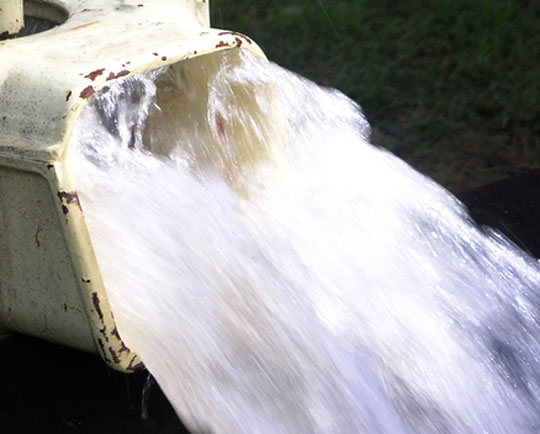How to
Rise in claims for water damage: how to prevent leaks

Legal & General’s seen a rise in insurance claims for leaks and damage to homes owing to an escape of water. Here are top tips to help prevent any water problems in your home.
With the cold weather fast approaching, many homeowners are turning their central heating back on.
However, what they may not be aware of is that it’s common to find that water pipes have deteriorated in the time between the central heating being turned off and then back on again for the winter months.
At Legal & General we have seen a rise in home insurance claims for leaks or damage to our customers’ homes due to an escape of water and we have paid out nearly £36m since 2014 to help repair the damage.
Below we list top tips for homeowners to help avoid such a situation in the future:
- Have your boiler (and any other gas appliances) serviced every year by a registered gas safe engineer. Regular maintenance will help avoid the appliance failing and will help to prevent leaks and carbon monoxide leaks.
- Monitor your water meter readings. If you notice a big increase in usage, this can often indicate a water leak. An easy way of monitoring your water usage is to take regular readings from your water meter. Don’t ignore a hidden leak.
- Make sure you have located where your main water stopcock or valve is and ensure that it is fully working. A way of double checking that your stopcock is working correctly is by turning it on and off on a regular basis. In doing so, this will prevent the possibility of the stopcock seizing when you need it in an emergency or for required plumbing maintenance.
- Check to see if you have a drain valve on your central heating system and ensure you understand how to operate it in the event of a water leak from the central heating system, as this will help to minimise any damage.
- Homeowners also need to ensure that their water pipes have been lagged [insulated] correctly; this can help to prevent pipes from freezing and bursting and has the added benefit of improving the environmental efficiency of your home.
- Purchase a water leak alarm, which are relatively inexpensive, quick to install and can provide early notice of a leak enabling you to reduce the amount of damage caused.
- Don’t ignore damage; a small issue can easily lead to a bigger problem. For example, bathroom seals around baths and showers are a common cause of leaks. Regularly check for any signs of deterioration or areas where these seals have detached from the surface. Replacing these is a straight forward inexpensive DIY job which can prevent unwanted disruption and costly damage.
You should also check if you have home emergency cover on your home insurance. This could provide 24-hour support and cover for call-out charges and parts for certain emergency repairs.
Having your home damaged by a leaking or burst water pipe can be extremely inconvenient; especially given it is often kitchens or bathrooms which are affected. Although an escape of water can at times be unpredictable, by following these key steps homeowners will be well positioned going into Christmas knowing they have done all they can to reduce the risk of a leak disrupting their lives.
Claire Hird is head of household claims at Legal & General